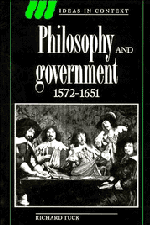Conclusion
Published online by Cambridge University Press: 05 July 2011
Summary
One way of looking at Hobbes's political theory shows particularly clearly his relationship to the story which I told in the earlier chapters of this book. Hobbes's men find peace and security by denying themselves individual judgement: by subordinating their own wills, desires and beliefs to those of their sovereign, not because the sovereign knows better, but because the disciplining of an individual psychology is necessary for one's well-being. Though Hobbes proposed the state as the means to self-discipline, and the earlier writers did not, in its essential characteristics Hobbes's idea was very close to that of Montaigne, Lipsius and their followers. As we saw in Chapters 2 and 3, it is a mistake to suppose that Renaissance Stoicism and Renaissance scepticism are two distinct movements: scepticism was not simply an epistemological position, a registering of philosophical doubt, but rather a set of prescriptions for how a ‘wise’ man should live. What the sceptics urged was that the path to wisdom lay through the renunciation of belief; what the Stoics claimed was that it lay through the renunciation of feeling. Clearly, there is at the very least a family resemblance between these two programmes, and in practice something more – for it is very reasonable to argue that the only way to escape damaging emotions is to purge ourselves of the believs which lead to them.
- Type
- Chapter
- Information
- Philosophy and Government 1572–1651 , pp. 346 - 348Publisher: Cambridge University PressPrint publication year: 1993

